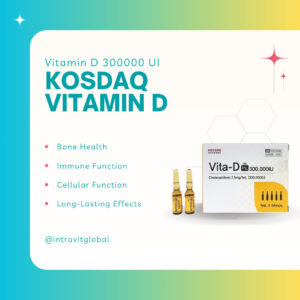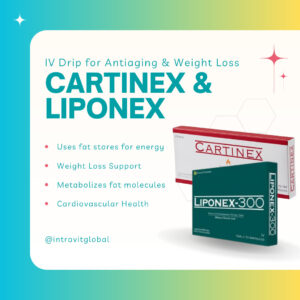How to Increase Vitamin D Levels Quickly and Effectively
Table of Contents
How to Increase Vitamin D Levels Quickly and Effectively
Introduction
Vitamin D is crucial for maintaining overall health, supporting bone strength, immune function, and mood regulation. If you’re looking to boost your Vitamin D levels quickly and effectively, you’re in the right place. Let’s explore various methods to help you achieve optimal levels.
Understanding Vitamin D
Vitamin D, a fat-soluble vitamin, helps the body absorb calcium and phosphorus, essential for bone health. It also supports immune function and reduces inflammation. There are two main forms: Vitamin D2 (ergocalciferol) and Vitamin D3 (cholecalciferol).
Signs of Vitamin D Deficiency
A deficiency in Vitamin D can manifest in various ways, including:
- Fatigue and tiredness
- Bone and back pain
- Depression
- Impaired wound healing
- Bone loss
- Hair loss
- Muscle pain
These symptoms can lead to more severe health issues if not addressed promptly.
Natural Ways to Boost Vitamin D Levels
Sun Exposure
The most natural way to increase Vitamin D levels is through sun exposure. Here’s how to maximize it:
- Optimal Times and Duration: Aim for 10-30 minutes of midday sun several times a week. People with darker skin may need longer exposure.
- Factors Affecting Synthesis: Geographic location, time of year, and skin type all influence Vitamin D production. For example, people living closer to the equator synthesize Vitamin D more effectively year-round.
Dietary Sources
Incorporating Vitamin D-rich foods into your diet is another effective strategy:
- Foods Rich in Vitamin D: Fatty fish (like salmon, mackerel, and sardines), egg yolks, beef liver, and fortified foods (such as milk, orange juice, and cereals).
- Meal Planning Tips: Plan meals that include these sources. For example, a breakfast of fortified cereal with milk, a lunch with a salmon salad, and a dinner with fortified orange juice and mushrooms can help increase your intake.
Effective Supplementation
Sometimes, diet and sunlight aren’t enough, and supplements are necessary:
- Types of Supplements: Vitamin D3 is generally preferred over D2 as it is more effective at raising blood levels of Vitamin D.
- Recommended Dosages: For most adults, 600-800 IU daily is recommended, but higher doses (1,000-4,000 IU) may be needed for those with a deficiency. Consult with a healthcare provider for personalized advice.
- Best Practices for Taking Supplements: Take Vitamin D supplements with a meal that includes fat to enhance absorption.
Lifestyle Changes for Better Vitamin D Levels
Outdoor Activities
Spending more time outdoors can naturally boost your Vitamin D:
- Exercise and Physical Activity: Engage in outdoor exercises like walking, jogging, or sports, especially during sunny days.
- Seasonal Adjustments: In winter or cloudy climates, consider short vacations to sunnier locations if possible.
Special Considerations
Skin Type and Sunscreen Use
- Skin Type: People with darker skin need more sun exposure to produce adequate Vitamin D. However, they have a natural protection against UV rays.
- Sunscreen Use: While sunscreen is essential to prevent skin cancer, it can also reduce Vitamin D synthesis. Balance sun protection with sufficient exposure by getting some sun without sunscreen before applying it.
Geographic Location and Climate
- Geographic Location: People living farther from the equator may need to rely more on supplements and diet, especially in winter months.
- Climate: Overcast weather and pollution can reduce the amount of UVB rays reaching your skin.
Age and Health Conditions
- Age: Older adults have a reduced capacity to synthesize Vitamin D. Supplements and fortified foods can help.
- Health Conditions: Certain conditions (like Crohn’s disease or celiac disease) affect Vitamin D absorption. Consult with a healthcare provider for tailored advice.
Monitoring and Testing Vitamin D Levels
Regular testing can help maintain optimal Vitamin D levels:
- Importance of Regular Testing: Periodic blood tests can track your Vitamin D levels and guide supplementation.
- Understanding Test Results: Levels between 20-50 ng/mL are generally considered adequate. Below 20 ng/mL indicates a deficiency.
- Adjusting Intake Based on Results: Use test results to adjust your diet, sun exposure, and supplement dosage as needed.
Potential Side Effects and Risks
While increasing Vitamin D is important, excessive intake can lead to toxicity:
- Signs of Vitamin D Overdose: Symptoms include nausea, vomiting, weakness, and serious complications like kidney damage.
- Balancing Sun Exposure and Skin Protection: Aim for a healthy balance to avoid skin cancer while ensuring sufficient Vitamin D synthesis.
- Consulting with Healthcare Providers: Always seek professional advice before making significant changes to your Vitamin D regimen.
Conclusion
Maintaining optimal Vitamin D levels is essential for overall health. By combining sun exposure, dietary sources, supplements, and lifestyle changes, you can effectively boost your Vitamin D levels. Regular monitoring and professional guidance will ensure you stay on the right track.
FAQs
How quickly can Vitamin D levels be increased?
It varies, but with consistent sun exposure, dietary changes, and supplementation, you can see improvements in a few weeks to months.
Can Vitamin D levels be increased through diet alone?
While diet helps, it’s often challenging to get enough Vitamin D from food alone. Combining diet with sunlight and supplements is usually more effective.
Is it safe to take high doses of Vitamin D supplements?
High doses should only be taken under medical supervision, as excessive Vitamin D can lead to toxicity.
How does Vitamin D affect mental health?
Vitamin D plays a role in mood regulation and may help reduce the risk of depression. Maintaining adequate levels is important for mental well-being.
What are the long-term benefits of maintaining adequate Vitamin D levels?
Long-term benefits include stronger bones, a healthier immune system, improved mood, and a lower risk of chronic diseases such as osteoporosis and certain cancers.
Checkout our Facebook Page and leave your review about our Health Care Products.
Related Products
-
Vitamin Drips
Nexus Pharma’s ETHICAL Hycobal Vitamin B12 Hydroxocobalamin 5mg/2ml to Elevate Your Energy, Naturally
Rated 0 out of 5£25.00 – £175.00 Select options This product has multiple variants. The options may be chosen on the product page -
Vitamin Drips
Masi Injection Magnesium Sulfate 0.5g/5ml for Skin Repair and Rejuvenating Regeneration
Rated 0 out of 5£23.00 – £75.00 Select options This product has multiple variants. The options may be chosen on the product page -
Vitamin Drips
Kosdaq Vitamin D 300000 IU Cholecalciferol per vial box of 5 ampoules
Rated 0 out of 5£25.00 – £75.00 Select options This product has multiple variants. The options may be chosen on the product page -
Vitamin Drips
Cartinex L-Carnitine Lipoic Acid Cocktail for Antiaging, Antioxidant and Weight Loss Benefits
Rated 0 out of 5£20.00 – £120.00 Select options This product has multiple variants. The options may be chosen on the product page





